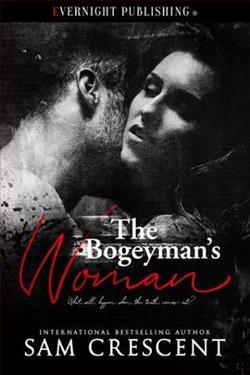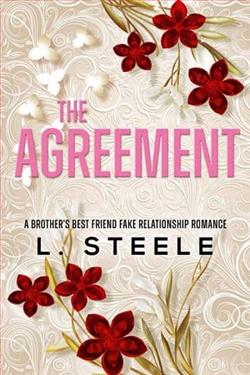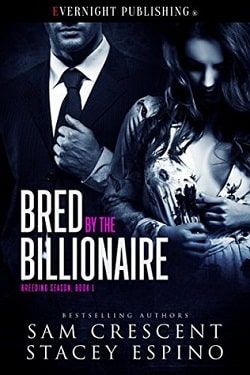Page 29 of The Magic of Sea Glass
“I have a proposition for you,” she said.
Mary’s eyebrows went up. “What is it?”
“What ifIinvested in the Tide and Swallow?”
Mary immediately shook her head. “Oh no, I’m not a charity. I can’t take handouts.”
“No,” Lauren said, stopping her. “It would be aninvestment, not a donation. To get the Tide and Swallow back to its best.”
“I don’t know… What if you lose your money?”
Lauren smiled, already getting excited. “I don’t think I would. With a little investment, I think you will have a goldmine in the Tide and Swallow.”
“Really?” Mary stared at her. “I wouldn’t know how to manage it all or how I could ever repay you.”
“I can make all the calls, schedule the contractors, and take everything off your hands that you don’t want to worry about, using my money until the inn is turning a better profit. Then maybe you can pay me back.”
She took one look at that million-dollar view out the window, praying her gut was right. She then turned back to Mary. Was that look on her face trepidation or enthusiasm?
“You’ve been so kind to me, I’d like to repay you for that. And I’dreallylike to do this.” When was the last time she’d thought that about anything?Lauren wondered.
“You’re an angel,” Mary said, tearing up.
At the mention of the word “angel,” Lauren slipped her hand into her pocket and grabbed hold of the sea glass, gripping it in her fist and praying that Mason was actually out there somewhere and could help her actually make a miracle happen.
* * *
Late Fall, 1957
Fairhope, Alabama
“I read about Stanford’s Interfraternity Council’s growing opposition to discrimination in the newspaper,” Phillip’s father said while the family sat together at the dining table, their first meal since Phillip had returned home from the university for a weekend.
“Times are certainly changing,” his mother said before taking a drink of her sherry, the taper candles in the centerpiece flickering in front of her. “For the better.”
Phillip dipped his spoon into his Burgundy beef stew silently, ladling a potato and a few carrots as he contemplated his mother’s comment. He was pleased that she said she was against racial and religious discrimination, but he’d had no idea she even possessed an opinion on the matter. Her little elite world was so small, she didn’t often discuss much more than the latest recipes for parties or the change in attire for her neighborhood bridge club. She hadn’t even accepted Penelope in his life simply because her family was poor; yet there she was, with her big opinion over dinner.
Tensions had remained ever since his parents had forced him to stay in his room, guarded by their butler, Jackson, and his father like a prisoner last summer to keep him from meeting Penelope at the bay. She’d probably gone back home to North Carolina with her parents, and without a phone in her home or Phillip knowing her address—neither of which he’d ever expected to need—he had no way of contacting her. His parents had shipped him out to Stanford the next week.
“You’ll thank us later,” his mother had said as she’d kissed his cheek at the train station.
He had yet to experience any gratitude over the situation.
His father buttered a roll, his face turned downward toward his hands as the butter melted in the steaming bread. “One fraternity lost its charter,” he commented. “Is your fraternity involved?” he asked Phillip.
“No, sir,” he answered before draping his cloth napkin next to his plate. “May I be excused?”
His mother looked up. “But you’ve barely eaten.”
“It’s been a long journey,” he said to appease her, when really, he had no appetite, sitting with the two people who’d ruined his life.
“Probably better that you get some rest,” his mother said. “Alicia Morton is coming over for drinks later tonight with her family.”
The glimmer in his mother’s eye made his skin crawl.
“She’s quite the catch,” his father added.
Phillip stood up. “All right,” he said.















